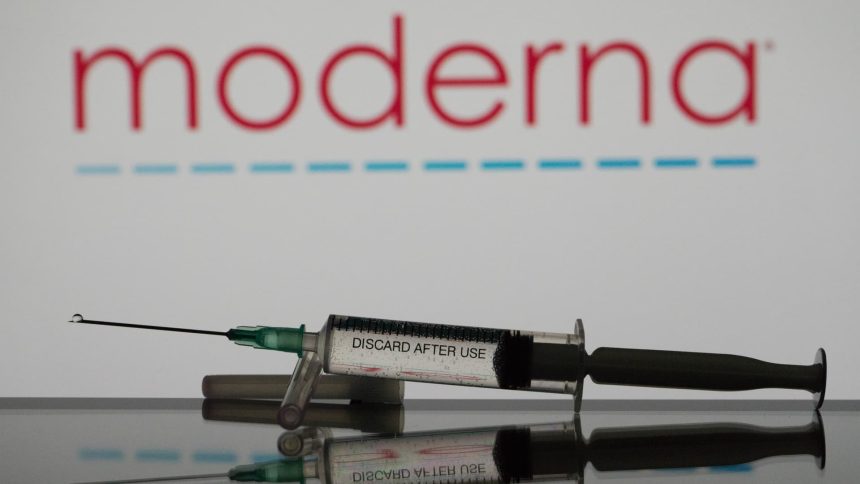Moderna on Thursday posted a narrower-than-expected loss for the first quarter as the company’s cost-cutting efforts took hold and sales of its Covid vaccine, its only commercially available product, topped estimates.
The results come as Moderna inches closer to putting another product on the market, which it badly needs as demand for Covid shots plunges worldwide. The biotech company rexpects a U.S. approval for its vaccine against respiratory syncytial virus on May 12. If cleared, that shot is expected to launch in the third quarter.
Here’s what Moderna reported for the first quarter compared with what Wall Street was expecting, based on a survey of analysts by LSEG:
- Loss per share: $3.07 vs. loss of $3.58 expected
- Revenue: $167 million vs. $97.5 million expected
“On the [operating expenses] side of a company, we’ve made great progress,” Moderna CEO Stéphane Bancel said of the cost cuts on CNBC’s “Squawk Box” on Thursday. He added that the biotech company’s team “has done a great job resizing the company.”
The biotech company booked first-quarter sales of $167 million, with revenue from its Covid shot dropping roughly 90% from the same period a year ago. Moderna reported $1.86 billion in revenue in the prior-year period.
Around $100 million came from the U.S., while $67 million came from international markets, primarily in Latin America, Moderna CFO Jamey Mock told CNBC in an interview.
The company said the revenue decline came in part from an expected transition to a seasonal Covid vaccine market, where patients typically take their shots in the fall and winter.
Moderna posted a net loss of $1.18 billion, or $3.07 per share, for the first quarter. That compares with net income of $79 million, or 19 cents per share, reported for the year-ago period.
The company reiterated its full-year 2024 sales guidance of roughly $4 billion, which includes revenue from its RSV vaccine. Notably, the company expects only $300 million of those sales to come in during the first half of the year since the season for respiratory viruses is typically in the latter half of the year.
Moderna has said it expects to return to sales growth in 2025 and to break even by 2026, with the launch of new products.
For the first quarter, Mock said the company is “more encouraged by what we’re seeing from a productivity perspective” than the higher sales of its Covid vaccine.
Cost of sales was $96 million for the fourth quarter, down 88% from the same period a year ago. That includes $30 million in write-downs of unused doses of the Covid vaccine and $27 million in charges related to the company’s efforts to scale back its manufacturing footprint, among other costs.
Research and development expenses for the first quarter decreased by 6% to $1.1 billion compared to the same period in 2023. That decline was primarily due to fewer payments to partners in 2024 and lower clinical development and manufacturing expenses, including decreased spending on clinical trials for the company’s Covid, RSV and seasonal flu shots.
Meanwhile, selling, general and administrative expenses for the period fell by 10% to $274 million compared to the first quarter of 2023. SG&A expenses usually include the costs of promoting, selling and delivering a company’s products and services.
The company said the reduction is in part due to its investments in “digital commercial capabilities” and increased focus on using AI technologies to streamline operations.
Last month, Moderna announced a partnership with AI heavyweight OpenAI that aims to automate nearly every business process at the biotechnology company.
Mock told CNBC that Moderna has been working with OpenAI for the past year. He added that 60% to 70% of the company currently uses an AI chatbot to do work.
Moderna has so far managed to shore up investor sentiment about its path forward after Covid. Shares of the company are up more than 10% this year on increasing confidence around its pipeline and messenger RNA platform, which is the technology used in its Covid shot.
Moderna currently has 45 products in development, several of which are in late-stage trials. They include Moderna’s combination shot targeting Covid and the flu, which could win approval as early as 2025.
Moderna is also developing a standalone flu shot, a personalized cancer vaccine with Merck and shots for latent viruses, among other products.
Read the full article here




